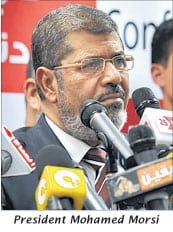Moroccan church on the rebound
Since the expulsions of a large number of expatriate mission workers in 2010 and subsequent harassment of local believers, Moroccan churches have been temporarily weakened.
Some cities were hit harder than others by the government’s action, with many local believers coming under increased scrutiny. Some underwent daily questioning and persecution for a while.
As a result, many local house churches stopped or curtailed their meetings. Some of these fellowships have now resumed meeting; others have not restarted. Local church leaders are working to re-gather the church and bring together many who have stopped coming.
Over the last few years, there has been a general decline in attendance at house churches in Moroccan cities. However, we are greatly encouraged by an increase in response to the gospel from Moroccans in rural areas. We hear exciting stories of significant numbers of Berber people coming to Christ.
There are several challenges for the Moroccan believers at the moment. First, the authorities are still watching them. Second, in some churches, there is a lack of trust towards one another and new believers.
Third, there is not a cohesive and unified Moroccan church. We hope that, as a result of the expulsion of key Christian workers, the Moroccan church will increasingly learn to lean on the Lord.
Next door in Algeria, the EPA (Protestant Church Association) has been officially recognised by the Algerian government. Such recognition is not yet the case for Moroccan churches which continue to meet underground.
Opportunities
It is too early to assess the influence of the Arab Spring on the situation for Moroccan believers.
The ‘February 20th Movement’ was birthed as Moroccans first took to the streets in protest. This movement was driven by young people, the unemployed and Islamists protesting against corruption at governmental level (but not against King Mohammed VI).
A new constitution was agreed last summer by an overwhelming majority. This diluted the king’s powers and allows for a democratically elected parliament and prime minister. A new government was formed following elections late last year. It remains to be seen whether or not it will be more tolerant of believers. Moroccans are generally optimistic about the future and anticipate a stronger, more transparent government.
We believe that the future is hopeful for Moroccan believers too. They need to press on in courage and faith, and trust one another more. Some spoke out with boldness at the time of the expulsions, and we are encouraged by this.
We know a Moroccan man who came to know and love the Lord, a journey that began when his brother brought him a Bible from Europe. There are other efforts to penetrate Morocco with the Scriptures, notably through Christian Arabic media, which spreads a wide net across the Arab world, connecting with those whom God is calling to himself.
Most Moroccans have access to the internet through mobile phones and personal computers, as well as to satellite TV. This presents a tremendous opportunity and we have witnessed a growth in Christian web sites, Facebook pages and TV programmes with a particular focus on Morocco.
Christine McLaren
Arab World Ministries











